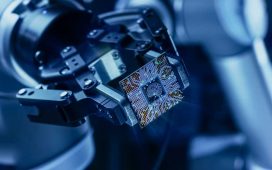Speculation over where Microsoft would take the Copilot brand next can now end thanks to the announcement of Earth Copilot in partnership with NASA.
Rather than framing the planet as a successor to Deep Thought from the Hitchhiker’s Guide in pursuit of the Ultimate Question of Life, the Universe, and Everything, this AI implementation is instead designed to help users navigate the petabytes of data collected from Earth observation satellites.
Geospatial data is tricky to work with and currently accessible to only a limited number of scientists and researchers. This challenge is set to worsen as more data is generated from more satellites equipped with improved instruments.
Microsoft wrote: “This issue isn’t just a matter of convenience; it has real-world implications. For example, scientists who need to analyze historical data on hurricanes to improve predictive models, or policymakers who want to study deforestation patterns to implement environmental regulations, may find themselves unable to easily access the data they need.
“This inaccessibility affects a broad array of sectors, including agriculture, urban planning, and disaster response, where timely insights from spaceborne data could make a significant difference.”
NASA is keen to make the data as accessible as possible, and to that end partnered with Microsoft to create a custom Copilot using the Azure OpenAI Service to make it easier for the general public to interact with the information. For instance, users could ask about the impact of Hurricane Ian on Sanibel Island, and the service would retrieve relevant datasets.
However, as with any generative AI service, a user needs to exercise caution. The platform is currently a proof of concept undergoing testing by NASA scientists and researchers. Microsoft wrote: “Any responsible deployment of AI technologies requires rigorous assessments to ensure the data and outputs cannot be misused.”
Hopefully before anyone bases their proposals on the hallucinations of a chatbot.
After a period of internal evaluation and testing, the hope is that the Earth Copilot will be integrated into NASA’s Visualization, Exploration, and Data Analysis (VEDA) platform. This assumes it works as expected and that funding for Earth science research remains intact. ®













